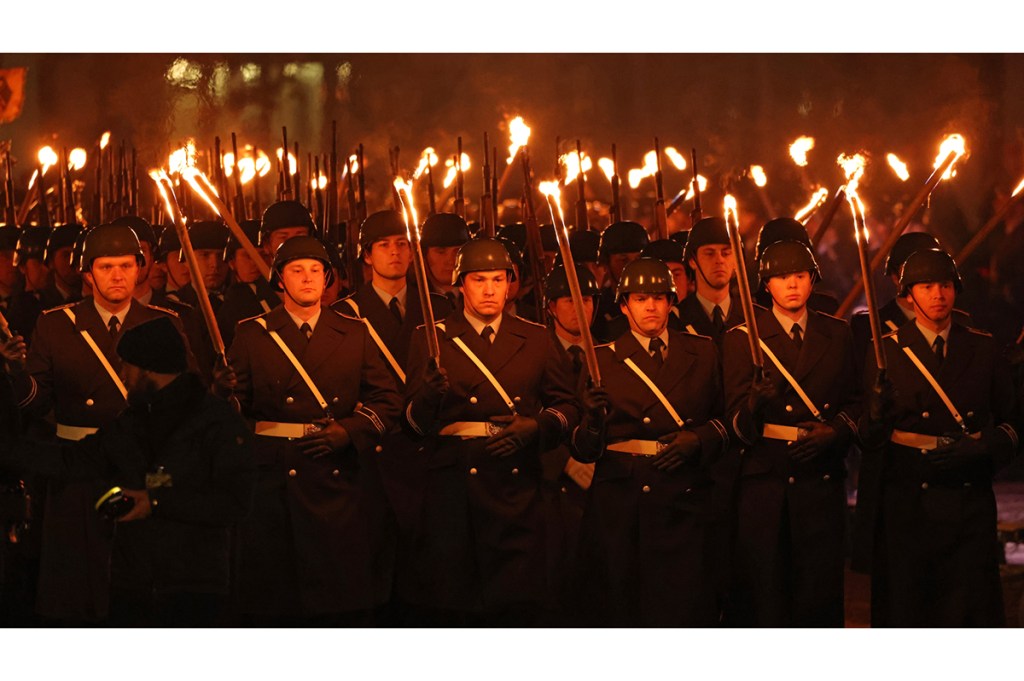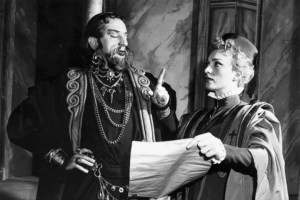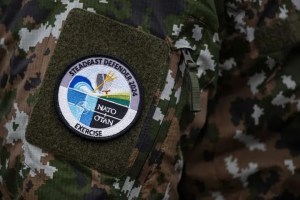Picture German troops marching in front of the Reichstag in Berlin. Their polished black boots hit the ground in rhythm with the drums. Night has fallen and the soldiers are carrying burning torches that cast an eerie glow over the spectacle.
But these aren’t Nazis. This ceremony was held on Wednesday in honor of Germany’s Afghan campaign. The inevitable furore has overshadowed the purpose of the event — to remember the 59 German fallen — exposing the dilemma of the German armed forces: can they have a sense of history and tradition despite their unforgivable role in Nazi crimes?
German politicians have been busy debating the purpose of the Afghan campaign since the Reichstag march. The outgoing defense minister has said that expectations ‘were greater than what the Bundeswehr was in a position to achieve’. Meanwhile, the president has spoken of ‘difficult and bitter questions’ but added that ‘they must be directed at parliament and the government who sent the Bundeswehr to Afghanistan’ rather than the military itself.
Debatte ist notwendig und wichtig. Vergleiche mit dem dunkelsten Kapitel Deutschlands enttäuschen uns.
Die Bundeswehr ist Parlamentsarmee. Als diese hat sie ihren Platz inmitten der Gesellschaft – bei besonderen Anlässen auch vor dem Reichstagsgebäude: pic.twitter.com/JMpAkXNPN8
— Verteidigungsministerium (@BMVg_Bundeswehr) October 14, 2021
President Steinmeier’s comments have been read as a repost to one of the arguments against the ceremony. This was not an event for the country to praise itself but for the soldiers to honor their veterans and their fallen comrades. Irrespective of the rights and wrongs of the campaign, they and their families deserve a dignified ceremony.
Yet the debate around the torch procession goes beyond Afghanistan. It’s a question of German history and the military’s place within it. In reality, the so-called ‘Zapfenstreich’ ceremony has its roots in the Napoleonic Wars. The Prussian king, Friedrich Wilhelm III, loved a Russian night-time ritual so much that he wanted one for his own army. The ceremony has been performed since at least 1838 by the armies of Prussia, the German Empire, the Weimar Republic, the Third Reich, and West Germany and East Germany in succession. It is a German tradition, not a Nazi one.
But therein lies the Bundeswehr’s problem. During the 12 years of Hitler’s reign, the army’s predecessor, the Wehrmacht, carried out unspeakable crimes. But it also used Germany’s history to legitimize the regime. Those pre-Nazi symbols and traditions were co-opted by Hitler, sullying them in a way that makes many Germans uncomfortable, regardless of their true origins.
That discomfort has real political implications. When Horst Köhler, Germany’s then-president, returned from a visit to the troops in Afghanistan in 2010, he dared to suggest that ‘a country of our size and dependency on exports…needs to understand that, in some cases, if necessary, it will have to get involved militarily’. He was called an ‘extremist’ in the press and damned by vast swathes of the German public. Köhler was shocked by the hostility, which contributed to his sudden resignation just nine days later.
Similar criticisms were levied against proposals to reinstate the Iron Cross. The German parliament debated the return of the medal in 2007, eventually passing the decision to the defense ministry itself. The emblem is already used on military planes, ships and vehicles in any case and proponents argued that it had long lost its association with Nazism. But they were wrong. The president relented under public pressure and told the Bundeswehr to create a new medal instead to avoid the association with the Third Reich. In reality, the Nazis were merely continuing to use a German honor that had existed for well over a hundred years before Hitler came to power.
The Bundeswehr has railed against the anachronistic comparisons with Nazism. It released a statement reiterating that the German military is a ‘parliamentary force’ that serves the people. As such ‘we have a place in society — and on special occasions in front of the Reichstag building too’.
Tradition has always been a central element of military life. It binds soldiers together and inspires collective loyalty. Why else are the Coldstream Guards — dressed in archaic bearskins and red tunics — found dotted around the palaces and state buildings of London? But Germany remains ill at ease with its military history. Perhaps as the memory of Nazism fades into deep history, those feelings of disquiet and shame will fade too. But there’s little sign of that discomfort fading any time soon.
This article was originally published on The Spectator’s UK website.


















